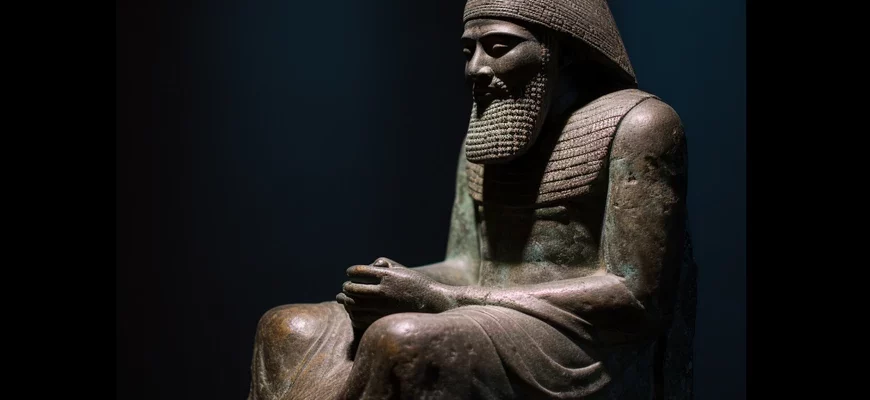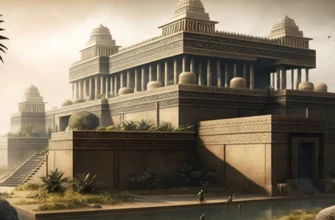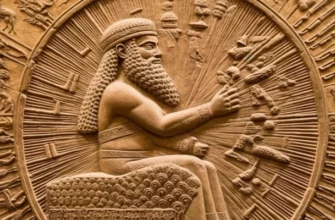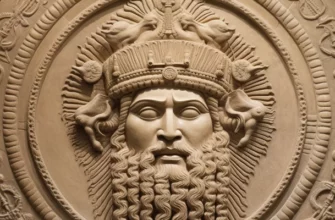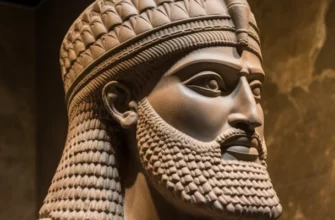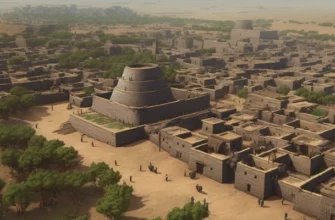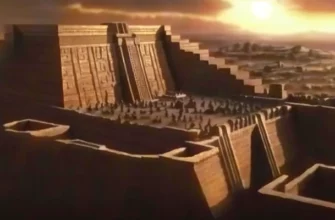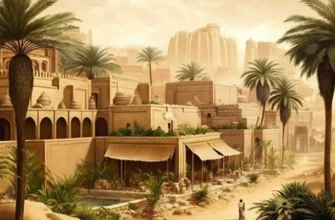Inanna Gudea (Inanna of Sira) was the third king of Sumer, who ruled around 2150 BC. He was known for his military and administrative achievements, as well as reforms aimed at improving the living conditions of the population and increasing the economic prosperity of Sumer. Inanna Gudea is also known for the “mathematical clay tablet” found by the Louvre expedition, which contains important information about the administrative and economic system of Sumer and Inanna Gudea himself.
Biography of Inanna Gudea
Inanna Gudea was king of Sumer from approximately 2144 to 2124 BC. He was known for his military achievements, including the successful defense of the city of Lagash from an attack by the neighboring city of Umma in 2130 BC. Inanna Gudea’s administrative reforms were aimed at improving the living conditions of the population and increasing the economic prosperity of Sumer. In particular, he ensured the drainage of fields, created a new system of weights and measures, and introduced a new coin, the shekel. He also built new temples and expanded existing ones. Textual documents found indicate that Inanna Gudea preferred to rule the country through fair justice and advisors rather than simple violence. His reign was one of the most stable and prosperous in the history of Sumer.
The administrative and economic system of Sumer
The administrative and economic system of Sumer during the reign of Inanna Gudea was based on local self-government and a decentralized system of administration. The government of Sumer consisted of a king, who had complete authority, and advisors who provided him with advice. Individual cities had their own leaders who were responsible for local administration.
As for the tax system, Inanna Gudea ensured the collection of taxes from his subjects, which could be in the form of food or labor. He also introduced a new coin, the shekel, which became a universally recognized means of exchange in Sumer. The government also ensured the safety of trade, in particular, there were posts on the road between cities where customs and exchange of goods took place.
In general, the system of government and economy during the time of Inanna Gudea was developed and fairly stable, which contributed to the prosperity of Sumer and its population.
Discovery by the Louvre expedition: a mathematical clay tablet
The Louvre expedition found a clay tablet in the ruins of Sumer, which turned out to be a mathematical document containing important information about the administrative and economic system of Sumer during the reign of Inanna Gudea. The tablet contained graphs and tables describing the system of accounting and control over food production and trade.
The tablet also contained instructions on tax collection and land distribution among peasants. The information on the tablet helped to reconstruct in more detail the structure of the government and the tax system of that time. In particular, it was established that power in Sumer was divided among several local rulers who cooperated with the central authority headed by Inanna Gudea.
The discovery of this tablet provided important information for studying the history of Sumer and the development of the administrative and economic system of this ancient civilization.
Conclusion
Inanna Gudea, as the third king of Sumer, made a significant contribution to the development of the administrative and economic systems of this ancient civilization. His reign is known for its huge construction projects, military achievements, and effective management system.
In particular, under Inanna Gudea, a government structure was created that allowed Sumer to effectively manage a large territory, ensure the development of trade and food production, and collect taxes.
Inanna Gudea is also known for his construction projects, in particular, he built the fortress city of Lagash, which became one of the most important cultural centers of Sumer.
All these achievements of Inanna Gudea had a great impact on the development of ancient Sumer and influenced the history of world civilization.
